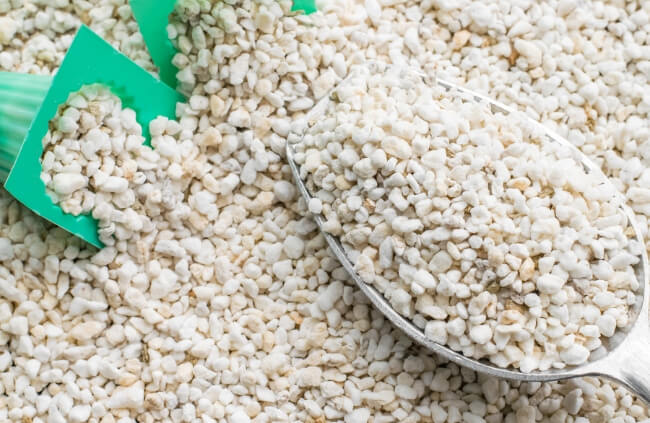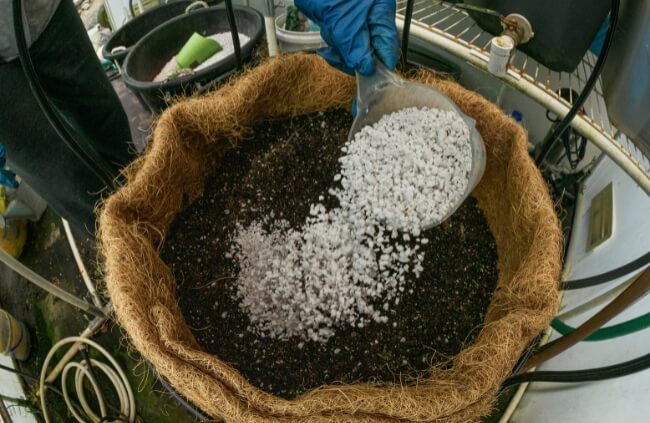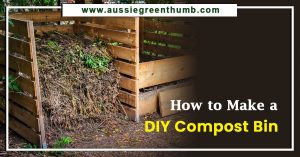If you are a gardener, no doubt at one point or another you have either used or heard about perlite. Whether you see it in your potting soil or purchased a bag to start plant cuttings, maybe you did not think a whole lot about what it is and where it comes from.
You may think this white, light, Styrofoam looking substance in your potting soil is tiny bits of Styrofoam. Have you ever asked yourself “Just what is perlite, anyway?”
More...
What is Perlite?

Perlite is not Styrofoam, nor is it a man-made material. Perlite is actually a volcanic glass. It is a very unique and special kind of siliceous rock, in that when heated to extreme temperatures, it expands anywhere from 4 to 20 percent of its size.
This expansion is caused by the water molecules inside the rock, which boil and evaporate, leaving tiny holes. This explains why perlite is so lightweight. Another characteristic which evolves from heating, is the normally grey to black rock turns white or light grey.
Is Perlite Safe?
Perlite has a 50 year history of mining and processing. Based on numerous studies, perlite poses no health risks. It is in no way related to asbestos. One particular study looked at the fluoride content in perlite to determine if plants grown with perlite absorb the naturally occurring fluoride, posing possible toxicity to the plant and human health.
The study determined perlite did not increase fluoride absorption, but raised concern about the additive known as Superphosphate, which did raise fluoride levels in tested plants.
Horticultural Uses of Perlite
Perlite is used in potting mixes and as a stand-alone soilless medium for plant rooting. It is pH neutral (around 7) and completely sterile, which is critical for rooting plant cuttings.
When used alone, it provides perfect aeration and holds the right amount of moisture. Perlite can hold three to four times its weight in water, but never becomes soggy. And unlike soil or organic matter, it never disintegrates.
Perlite in Hydroponic Systems
Perlite is also used with hydroponic systems world wide, with superior crop production. When used in potting soil mixtures, perlite lightens the mixture and improves aeration and drainage. This is especially useful for large container plantings.

Using Perlite in Rooftop Gardens
The newest use of perlite is in rooftop gardens. This makes sense, since perlite is proven to grow healthy, viable plants, why not on a roof? The main limiting factor for rooftop gardens is weight.
Using perlite over other soil mixtures reduces the weight dramatically, by more than half, allowing gardens to thrive in cities where garden space is virtually non-existent. The added benefit is the green roof also reduces heat gain inside the building.
Plant nurseries are also on the perlite band wagon. With shipping costs based on weight, using perlite reduces these costs without sacrificing plant health on long trips.
Aside from its use as a soil amendment or replacement, perlite is used as a carrier for herbicides, pesticides and fertilisers. Perlite is also used to pelletize seeds for easier planting.
Using Perlite in the Construction Industry
Perlite has high insulating abilities, making it useful in many construction materials. For masonry blocks, perlite is poured into the holes, increasing the insulating properties of the concrete.
Since it is non-flammable, perlite adds fire protection. Perlite is added to Portland cement, chimney liners, floor insulation, sheet rock, ceiling tiles and many other materials to provide fire protection and reduce sound transmission.
Perlite is used in making bricks, which are fired at high temperatures, because of its high heat resistance.
Industrial Uses for Perlite
Perlite has many uses in the industrial world. Pharmaceutical companies use perlite for filtering, as do companies manufacturing food products. Swimming pool water is filtered through perlite, as well as drinking water coming from your local water company.
Perlite works as an anti-caking agent, and even filters the wine you had with dinner. Perlite is also used as an ingredient in plastics, and in the formation of cements used in the construction of oil and water wells.
Other Uses of Perlite
Perlite is somewhat abrasive, so it is added to soaps and cleansers to boost cleaning power. It is also found in polishes.
Published on June 6, 2023 by Nathan Schwartz
Last Updated on December 4, 2023




